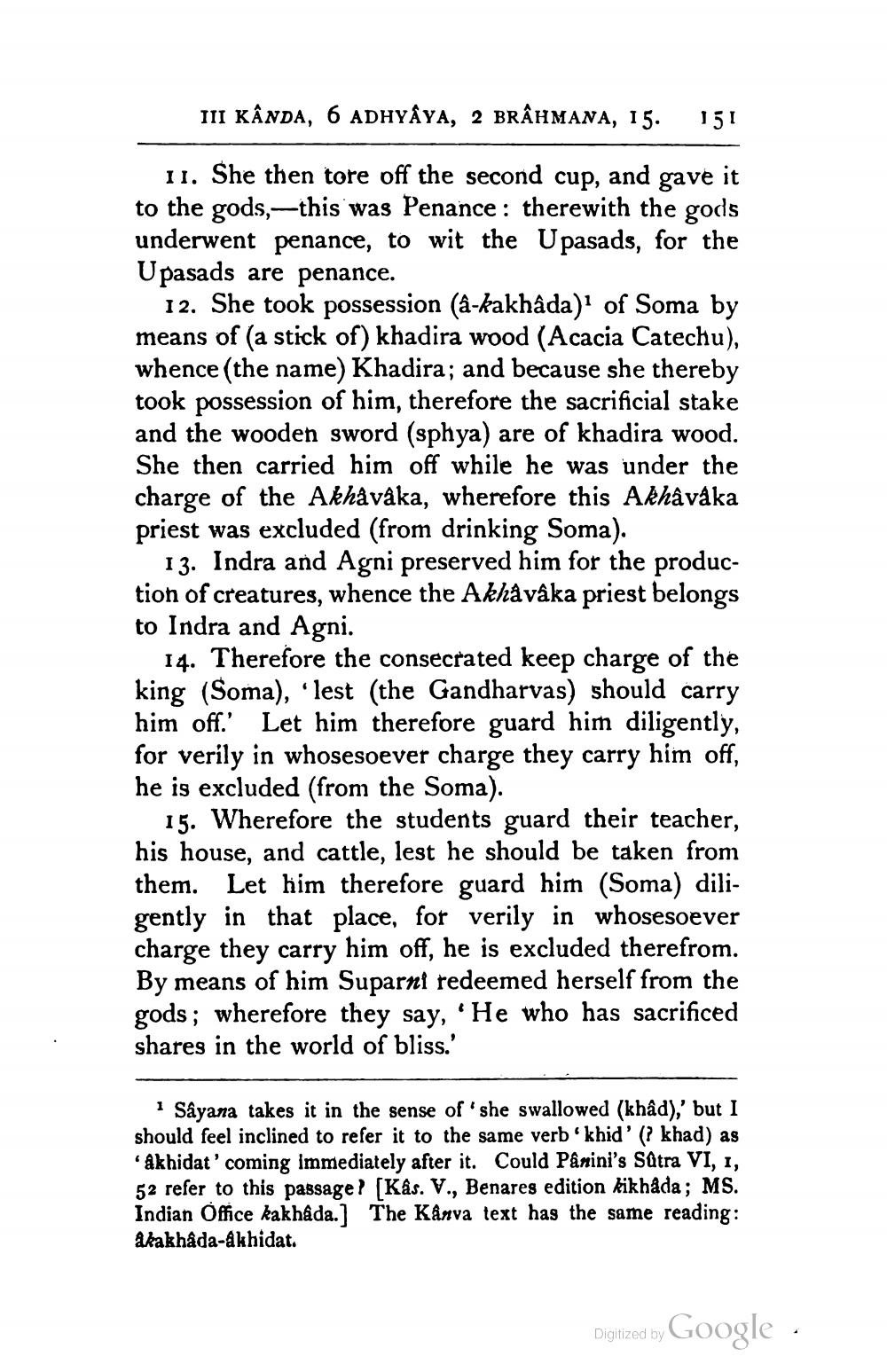________________
III KÂNDA, 6 ADHYÂYA, 2 BRÂHMANA, 15.
151
11. She then tore off the second cup, and gave it to the gods,—this was Penance : therewith the gods underwent penance, to wit the Upasads, for the Upasads are penance.
12. She took possession (ä-kakhâda)' of Soma by means of (a stick of) khadira wood (Acacia Catechu), whence (the name) Khadira; and because she thereby took possession of him, therefore the sacrificial stake and the wooden sword (sphya) are of khadira wood. She then carried him off while he was under the charge of the Akhåváka, wherefore this Akhâváka priest was excluded (from drinking Soma).
13. Indra and Agni preserved him for the production of creatures, whence the Akhåvâka priest belongs to Indra and Agni.
14. Therefore the consecrated keep charge of the king (Soma), lest (the Gandharvas) should carry him off.' Let him therefore guard him diligently, for verily in whosesoever charge they carry him off, he is excluded (from the Soma).
15. Wherefore the students guard their teacher, his house, and cattle, lest he should be taken from them. Let him therefore guard him (Soma) diligently in that place, for verily in whosesoever charge they carry him off, he is excluded therefrom. By means of him Suparni redeemed herself from the gods; wherefore they say, 'He who has sacrificed shares in the world of bliss.'
Sâyana takes it in the sense of 'she swallowed (khâd),' but I should feel inclined to refer it to the same verb‘khid' (? khad) as
Akhidat' coming immediately after it. Could Panini's Sutra VI, 1, 52 refer to this passage? (Kas. V., Benares edition kikhåda; MS. Indian Office kakhada.] The Kånva text has the same reading: Akakhâda-Akhidat.
Digitized by Google




